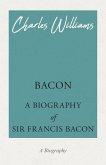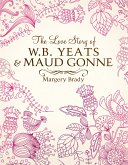In "Rochester," Charles Williams crafts a rich narrative that delves into the tumultuous life of John Wilmot, the 2nd Earl of Rochester, an eloquent Restoration poet whose works resonate with themes of hedonism, rebellion, and the quest for authenticity. Williams employs a lyrical yet accessible style, intertwining historical fact with poetic interpretation, providing a nuanced exploration of Rochester's rich yet tragic existence against the backdrop of 17th-century England. This literary context allows readers to engage deeply with the complexities of Rochester's character, reflecting on the interplay of art and life while navigating the moral ambiguities of his choices. Charles Williams, a prominent member of the Inklings alongside J.R.R. Tolkien and C.S. Lewis, drew inspiration from his fascination with literary figures who grappled with the dualities of existence. His scholarly background in medieval literature informs the robust intertextuality found in "Rochester," as he seeks to elevate the complex persona of the Earl beyond mere biography into a profound meditation on human experience and artistic legacy. Williams' life experiences, including his own artistic pursuits, deeply influenced his portrayal of Rochester's struggles with authenticity and societal expectation. I highly recommend "Rochester" to readers who appreciate literary biographies and poetic explorations of historical figures. This work not only illuminates the life of a fascinating character but also challenges readers to reflect on their own understanding of art, identity, and the sometimes-painful costs of authenticity. Williams' incisive prose and vivid characterizations promise to engage both scholars and casual readers alike.
Dieser Download kann aus rechtlichen Gründen nur mit Rechnungsadresse in A, B, BG, CY, CZ, D, DK, EW, E, FIN, F, GR, H, IRL, I, LT, L, LR, M, NL, PL, P, R, S, SLO, SK ausgeliefert werden.









